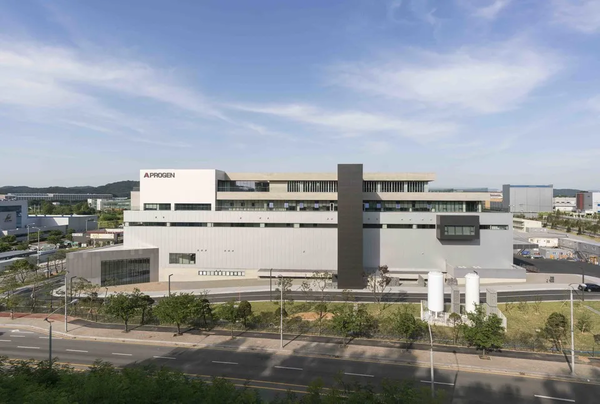Aprogen, a Korean biopharmaceutical company, has voluntarily suspended its global phase 3 clinical trial for the Herceptin biosimilar AP063, aligning its strategy with the European Medicines Agency (EMA)’s newly proposed guideline aimed at simplifying biosimilar approvals.

AP063 is a biosimilar of trastuzumab, sold under the brand name Herceptin, used to treat HER2-positive breast cancer and metastatic gastric cancer.
The company disclosed in a public filing on Thursday that it would discontinue the multinational trial that had been underway in Europe and India. Aprogen explained that the decision was prompted by a recent reflection paper published by the EMA, which allows for the possibility of obtaining biosimilar approval without a phase 3 trial, provided that specific requirements are met.
Earlier this month, the EMA released a draft guideline focused on streamlining the biosimilar development and evaluation process. The draft recommends removing the need for repetitive comparative efficacy studies, instead emphasizing critical data such as quality, functional similarity, pharmacokinetics (PK), and pharmacodynamics (PD).
Under the current framework, biosimilar developers were typically required to conduct large-scale clinical trials involving hundreds of patients, with development timelines ranging from seven to ten years.
The EMA acknowledged that this approach incurs substantial costs and delays, while also creating difficulties in securing reference biologics. The agency emphasized that while the EU’s safety standards will remain intact, the revised framework is intended to improve patient access and market efficiency by eliminating unnecessary testing.
Industry experts say the new guideline, expected to take effect in 2026 following a public consultation period through September, could lower the entry barriers for smaller and mid-sized biopharmaceutical companies.
With patents for 69 biologics set to expire in Europe by 2030, the market potential for follow-on biosimilars is projected to grow rapidly.
Aprogen’s original global phase 3 study, announced last October, was designed to enroll 720 patients across 147 hospitals in 19 countries. However, the company now anticipates that EMA’s regulatory change will lead to a significantly shortened approval pathway and substantial cost savings.
“Following our decision to voluntarily halt the AP063 phase 3 trial, we expect a notable reduction in development costs,” the company said. “Pending further discussions with the EMA, we may supplement our application with additional phase 1 data or other materials if required.”
Meanwhile, the broader Korean biopharma industry has welcomed the EMA’s move. According to the Bioeconomy Research Center of the Korea Biotechnology Industry Organization (KoreaBIO), bypassing large-scale phase 3 trials could save developers up to 200 billion won ($140.6 million) per product.
Related articles
- Aprogen causes stir by reversing plan to acquire US plant
- Celltrion expands market presence in Italy with autoimmune disease biosimilars
- Prestige Biopharma swings to ₩32.1 bil. profit as Tuznue milestone payments roll in
- Celltrion secures EU approval for Actemra biosimilar
- Blood test identifies high-risk gastric cancer in underscreened groups

